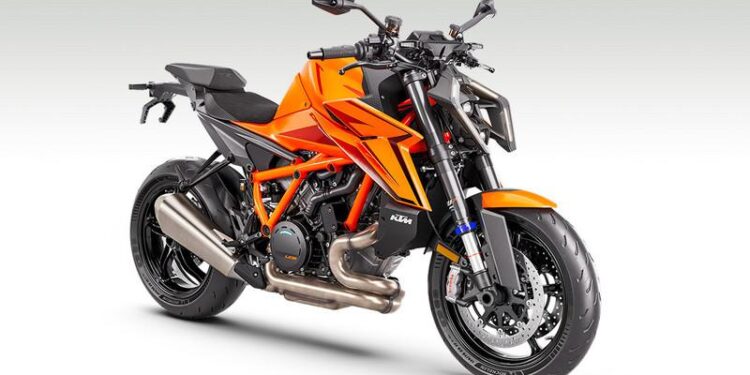Update on the Motorcycle Sector: KTM’s Production Halt Raises Alarm
In a significant development within the motorcycle industry, KTM has announced yet another suspension of production at its Austrian facility, raising concerns about the company’s operational stability and supply chain effectiveness. This latest interruption follows a series of challenges that have plagued the esteemed manufacturer in recent months, including ongoing disruptions and labor shortages that have delayed production schedules. As motorcycle enthusiasts and industry analysts closely monitor these events, the implications of this pause reach beyond manufacturing plants, affecting dealerships, consumers, and KTM’s market position. This article delves into the details surrounding this production stoppage while exploring its causes and potential impacts on one of motorsport’s leading brands.
Impact of KTM’s Production Halt on the Global Motorcycle Market
The recent suspension at KTM has sent ripples throughout the global motorcycle market, raising alarms among manufacturers, retailers, and fans alike. As a pivotal player in this arena,KTM’s decision to temporarily halt operations is anticipated to lead to considerable repercussions such as:
- Supply Limitations: The shutdown may exacerbate existing supply chain issues, restricting access to popular models.
- Market Volatility: Competitors could face fluctuating demand as consumers reevaluate their options due to KTM’s break.
- Financial Ramifications: Investors might experience diminished revenues which could prompt a reevaluation of financial strategies.
This disruption has the potential to significantly alter competitive dynamics within the sector; other motorcycle brands may need to adapt swiftly. As companies vie for consumer attention during this period, it could also ignite innovation and diversification across various brands. Possible shifts in market dynamics might include:
| Brand | Plausible Impact |
|---|---|
| Suzuki | A potential increase in market share due to KTM’s absence. |
Analysis of KTM’s Supply Chain Challenges and Future Strategies
KTM is currently grappling with significant challenges within its supply chain exacerbated by ongoing global disruptions. Recent evaluations indicate that multiple production halts have occurred due to delays involving essential components and raw materials. Key factors contributing to these interruptions include:
- The global semiconductor shortage, impacting electronic components crucial for modern motorcycles.
- Bottlenecks in logistics, resulting from port congestion and transportation delays complicating imports necessary for assembly lines.
- Rising material costs, driven by inflationary pressures alongside geopolitical tensions affecting overall budget allocations for manufacturing.
Looking ahead, KTM is formulating strategies aimed at mitigating these vulnerabilities while bolstering operational resilience through initiatives such as:
- Diversifying supplier networks, reducing dependence on single sources susceptible to disruption.
- Pursuing investments into local manufacturing facilities to lessen reliance on international shipping routes while expediting production processes.
- Leveraging advanced technologyfor improved inventory management along with demand forecasting capabilities ensuring optimal planning during manufacturing cycles.
| Challenge | Future Strategy |
|---|---|
| Component Shortages | Diverse Supplier Network |
| Logistics Issues | Local Manufacturing Investment |
| Escalating Costs | Enhanced Technology Integration |
Strategic Guidance for Industry Players Amid Continuing Disruptions
The motorcycle sector must adopt proactive measures as it navigates through another suspension at KTM; stakeholders should implement flexible operational strategies aimed at mitigating challenges while ensuring stability moving forward.< strong Adaptability within operations is vital; businesses should explore diversifying their supply chains so they are not overly reliant upon singular sources vulnerable towards disruption . Additionally ,embracing advanced technologies like AI or IoT can facilitate better real-time data analysis enabling manufacturers respond swiftly changes occurring markets or issues arising during productions . Prioritizing sustainability initiatives addresses environmental concerns whilst enhancing brand loyalty amongst increasingly eco-conscious consumers .
Moreover , collaboration among stakeholders becomes crucial fostering resilience throughout entire ecosystem . Establishing networks comprising suppliers , logistics partners even competitors encourages knowledge sharing strengthens entire industry . Developing contingency plans prepares organizations face future disruptions more effectively maintaining open interaction channels with customers managing expectations building trust uncertain times . By implementing these strategic approaches players navigate challenges posed ongoing disruptions emerge stronger evolving marketplace .
Final Thoughts: Navigating Future Uncertainties!
In conclusion , KTMs latest production halt underscores significant obstacles faced by manufacturers amidst ongoing global supply chain disturbances affecting fleet availability future product launches remains uncertain enthusiasts stakeholders motorsport community serves reminder complexities inherent modern-day manufacturing landscape navigating uncertainty updates recovery efforts will be closely monitored stay tuned GPone.com latest developments insights evolving narrative surrounding one Europes leading motorcycle brands!
















